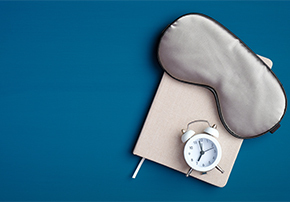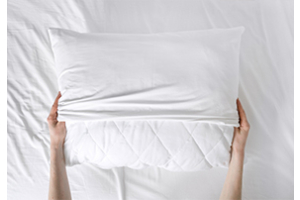How to Get Less Sleep?

How to Get Less Sleep?
Can You Get By on Less Sleep? Everyone needs a consistent number of hours of quality, deep sleep every night. Sleep research shows that for optimal health adults should consistently aim for 7 to 9 hours a night. Yet we all know of high-profile achievers who seem to get by on a lot less sleep. If you’re an ambitious sort whose goals require extended work hours, your sleep time is where you’ll likely compromise. Is it healthy, let alone advisable, to recalibrate your usual sleeping hours over an extended period? Let’s take a look at the implications.
Can You Adapt to Less Sleep?
Sleep scientist, Dr Dale Rae, shares her insights.
“It may seem impressive that go-getters can maintain a highly functioning focus and drive on perhaps 6, or even 4 hours’ sleep every night. These are likely people in key, high-pressure positions, or who might have relentless workloads. Success depends on achieving all-important performance goals or results.”
“Compromising on your usual sleep routine,” Dr Rae cautions, “is not advised.” It is well-known that people who manage good sleep hygiene – that is, ensuring that daytime and night-time habits, or behaviours, help to get a good night’s rest – are likely to be more alert and focused during waking hours. Not to mention benefiting from the numerous perks good quality sleep gives us: better athletic performance and recovery, a stronger immune system, a healthier cardiovascular system, better glucose control and improved mood.
What if you really do need those extra few hours in the day (or night) to operate at a more competitive level? Can you adapt your sleep without becoming overly tired?
“There are techniques to shift your sleeping hours to an earlier or later bedtime,” says Dr Rae, “but, again, it is not ideal to compromise your normal sleep routine.” You may get away with sleeping perhaps one less hour every night, but at what cost? While you may feel that you are fine and that you have “adapted” to less sleep because you don’t feel sleepy, you are likely not performing at your best (physically, mentally or emotionally) and you may feel the effects in the long term. Here’s what you really need to consider.
Take Better Control of Your Sleep.
People who operate at intense levels, chasing down demanding schedules, should certainly weigh up the long-term implications of less sleep for sustainable performance.
Understand the cost of less sleep
You may certainly be able to get by on shorter sleep periods, but it is definitely not recommended. The more extreme the sleep deprivation, the worse the effects, so always be mindful not to be too extreme about it – the closer you are sleeping to your individual sleep needs, the better. When you sleep less than your normal number of hours, you build up what is called ‘sleep debt’. An accumulated sleep deficit will eventually manifest itself in sluggishness, fatigue, and perhaps even exhaustion. Dealing with day-to-day stress may become harder to manage. “Ironically,” shares Dr Rae, “it is common for burnout to be blamed on a relentless work schedule, rather than insufficient sleep. If anything, a fast working pace might ideally be balanced by calmer, extended periods of rest. Think of sleep as yet another Key Performance Indicator. It is as much an ‘activity’ as you need to excel at performing at your best.”
Be disciplined about your sleep
The adage "work hard, play harder” becomes something altogether different when you take on mission-critical levels of responsibility. Decompressing and affording yourself meaningful downtime requires both mental and physical recuperation. Sure, there's nothing like a great party for a release. Hopefully, it's to celebrate a major win or promotion. For the most part, however, you want to be jealously guarding not just your recharging time, but your daytime nutritional and exercise routines, too.
Go easy on caffeine. Stay hydrated, especially when under pressure. Make time to get regular exercise. Do something you particularly enjoy as a rewarding escape. Most importantly, try to be methodical about calming and readying yourself for sleep ahead of bedtime. If you’re sleeping slightly less than usual, you want to be sure, even pedantic, about getting the benefit of full, deep sleep through the night.
Preferably, shift your sleep time
If your sleep is being restricted by late night or early morning commitments, then you may find it possible to shift your sleep to an earlier or later time to accommodate. This will still allow you to get the full number of sleep hours that you ideally need. “Again,” says Dr Rae, “you may find it difficult to shift your bedtime more than 2 hours later or earlier. You can’t really fight your in-built body clock – your natural circadian rhythm. You’re either an early, late or in-between sleeper.” But, when the realities of work circumstances and family commitments constrain your schedule, it would be preferable to try and maintain your usual number of sleep hours by shifting your sleep patterns slightly and focusing on the quality of your sleep.
Consider Sleep Coaching.
Everybody’s heard of life coaching. It often helps to consult with an objective professional who understands the dynamics of high-level functioning. You may be surprised that professional sleep advice can be just as effective and helpful. Dr Rae’s Sleep Science team consults online with people from all walks of life. Whatever your daily challenges, you would do well to master your all-important sleep as well. Find out more at www.sleepscience.co.za and explore the benefits of extensive sleep research put into practice.
High Performance Sleepers Come to Dial•a•Bed.
If you’re passionately focused and driven, you’ll likely have high expectations. You’ll take your sleep just as seriously as your daily achievements. No compromises. Dial•a•Bed is South Africa's largest bedding retailer. There's bound to be one of the 76 stores nearest you and to save time shopping for your perfectly engineered mattress, you can "window shop" online at www.dialabed.co.za. When every hour counts, choose your best sleep for an even better day. Every day.
TAKE CARE: Lifestyle recommendations are not medical advice. Always consult your healthcare professional should you be experiencing prolonged sleep difficulties or related health issues.





